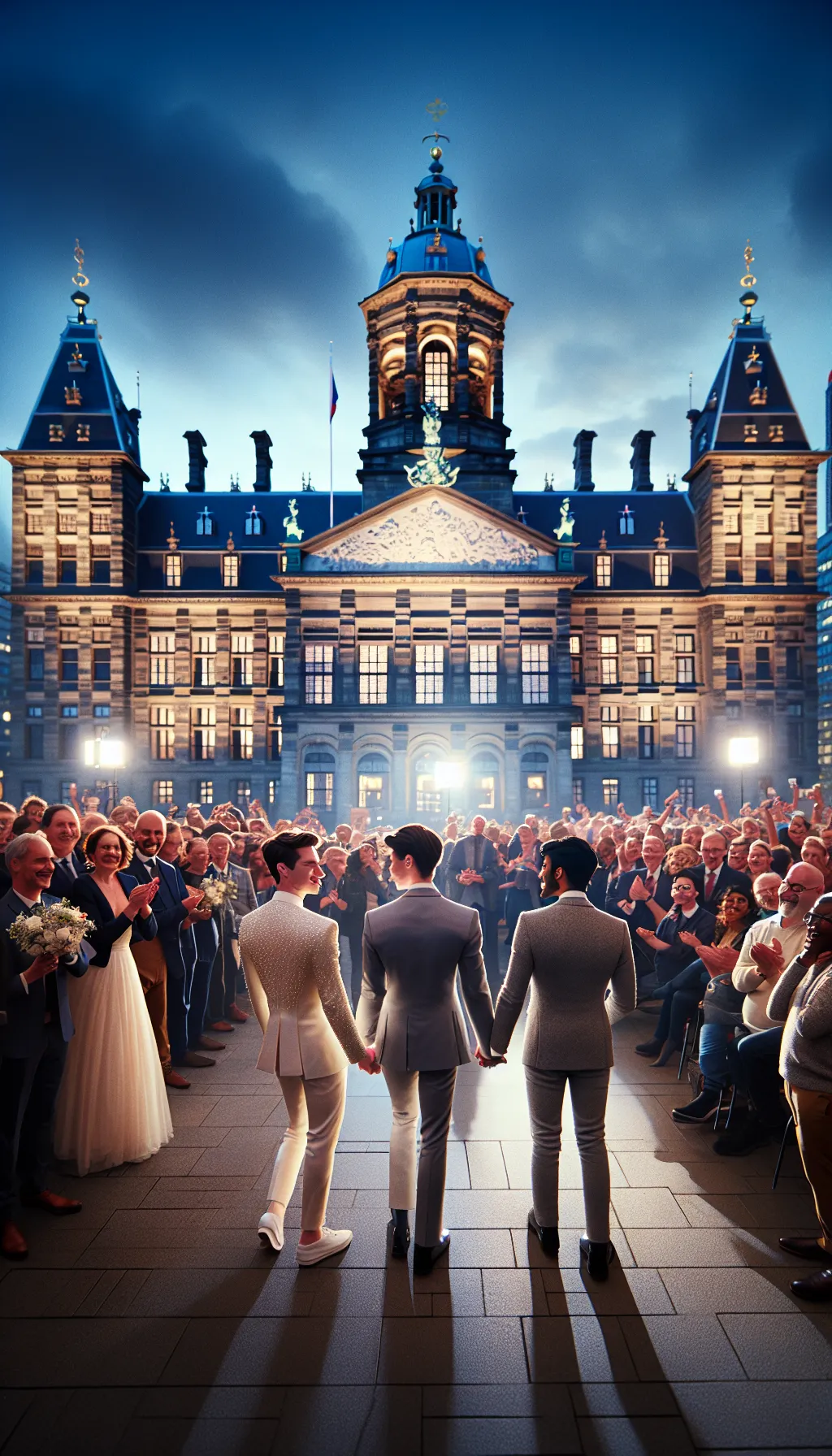Netherlands – A New Dawn of Equality – April 1, 2001
TLDR;
- Historic Milestone: On April 1, 2001, the Netherlands became the first country to legalize same-sex marriage, with three same-sex couples and one heterosexual couple marrying in Amsterdam.
- Legislative Background: The law was passed on December 21, 2000, under Prime Minister Wim Kok, marking a significant step towards LGBTQ+ equality.
- Global Impact: The event was widely covered by international media, inspiring other countries to consider and eventually legalize same-sex marriage.
- Symbol of Progress: This moment was celebrated as a victory for love and equality, challenging global perceptions and advancing human rights.
–
Story
As the clock struck midnight on April 1, 2001, the air in Amsterdam was electric with anticipation. In a historic move, the Netherlands was about to become the first country in the world to legalize same-sex marriage. The world watched as three same-sex couples (one female couple and two male couples) and one heterosexual couple, hand in hand, stepped into the city hall, ready to make history.

For years, the LGBTQ+ community had fought for recognition and equality. The journey had been long and fraught with challenges, but this moment was a beacon of hope. The Dutch government, under the leadership of Prime Minister Wim Kok when the law was passed on December 21, 2000, had taken a bold step, recognizing that love knows no gender. The law came into effect on April 1, 2001, marking a significant milestone in the fight for equality.
The ceremony was simple yet profound, highly publicized and attended by media from around the world, emphasizing its historic nature. As the couples exchanged vows, tears of joy and relief flowed freely. It was a turning point, not just for the Netherlands, but for the world. The legalization of same-sex marriage was a powerful statement of acceptance and equality, setting a precedent that would inspire other nations to follow, though many took years or even decades to do so.
The Netherlands had opened the door to a new era of human rights, challenging societies worldwide to reconsider their views on love and marriage. It was a victory for love, a triumph for equality, and a testament to the power of perseverance. As the sun rose on April 1, 2001, it heralded a new dawn of equality. The world had changed, and there was no turning back.
–
| Would a different approach have delayed the global acceptance of same-sex marriage? |